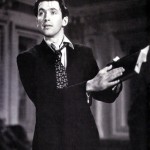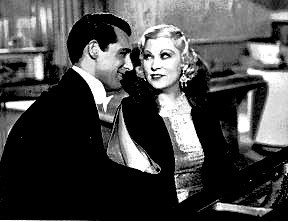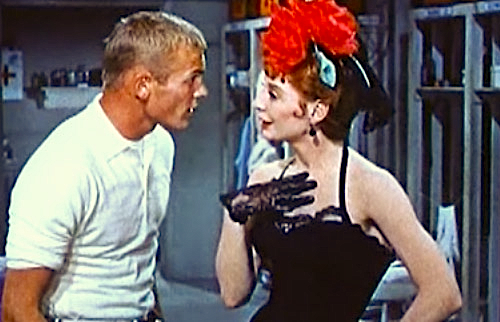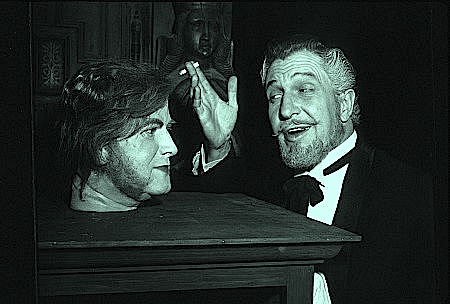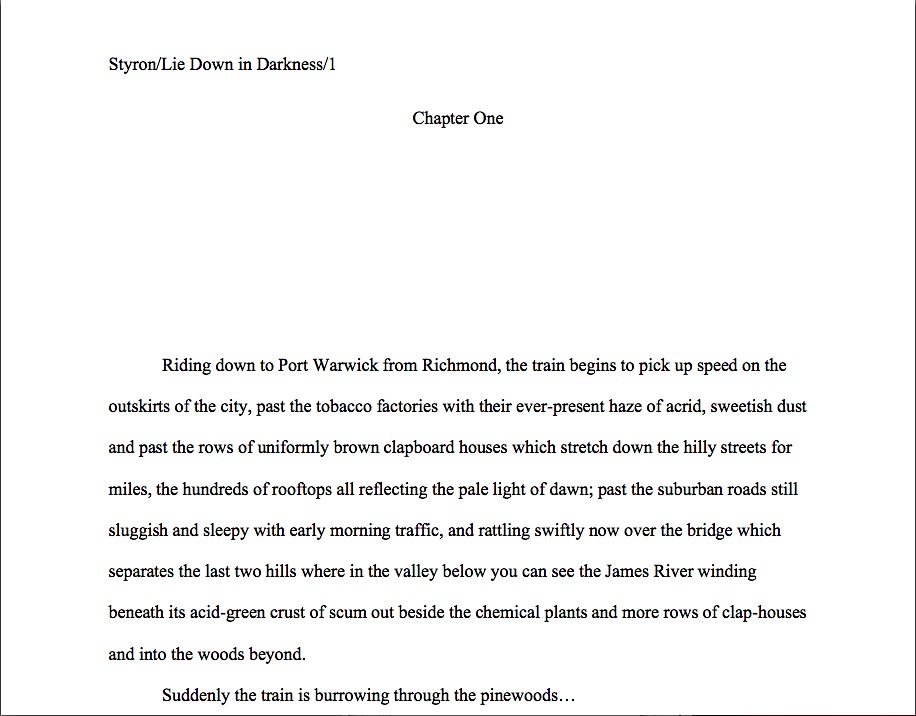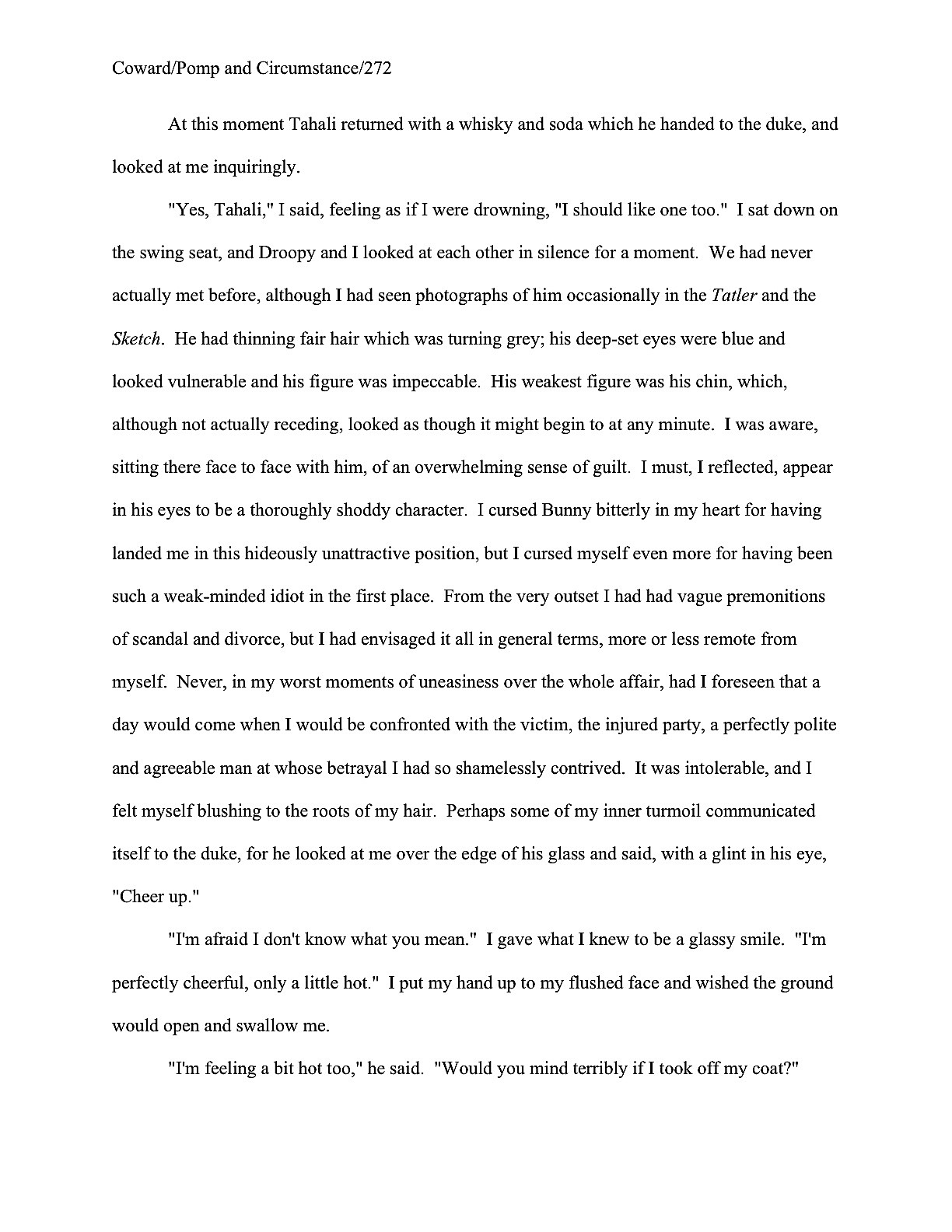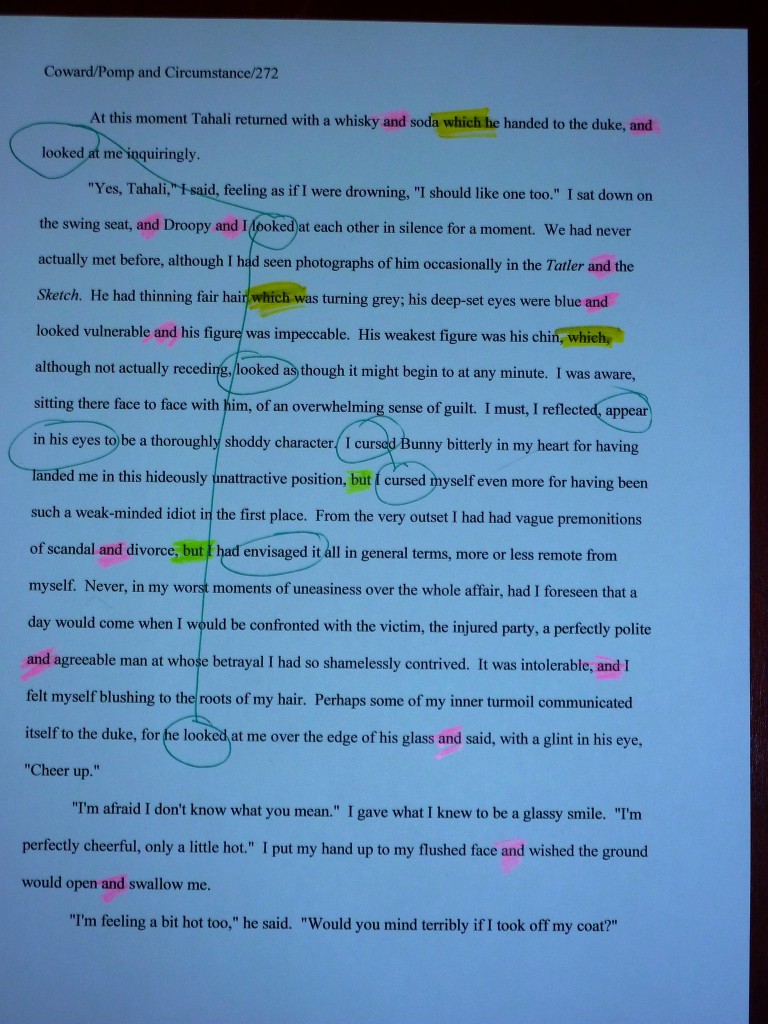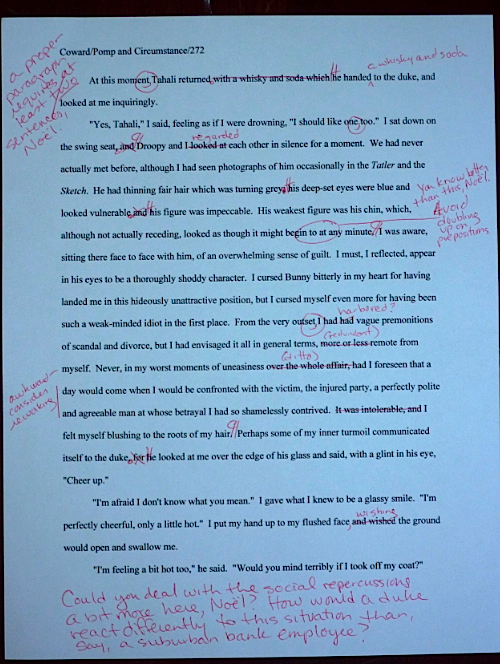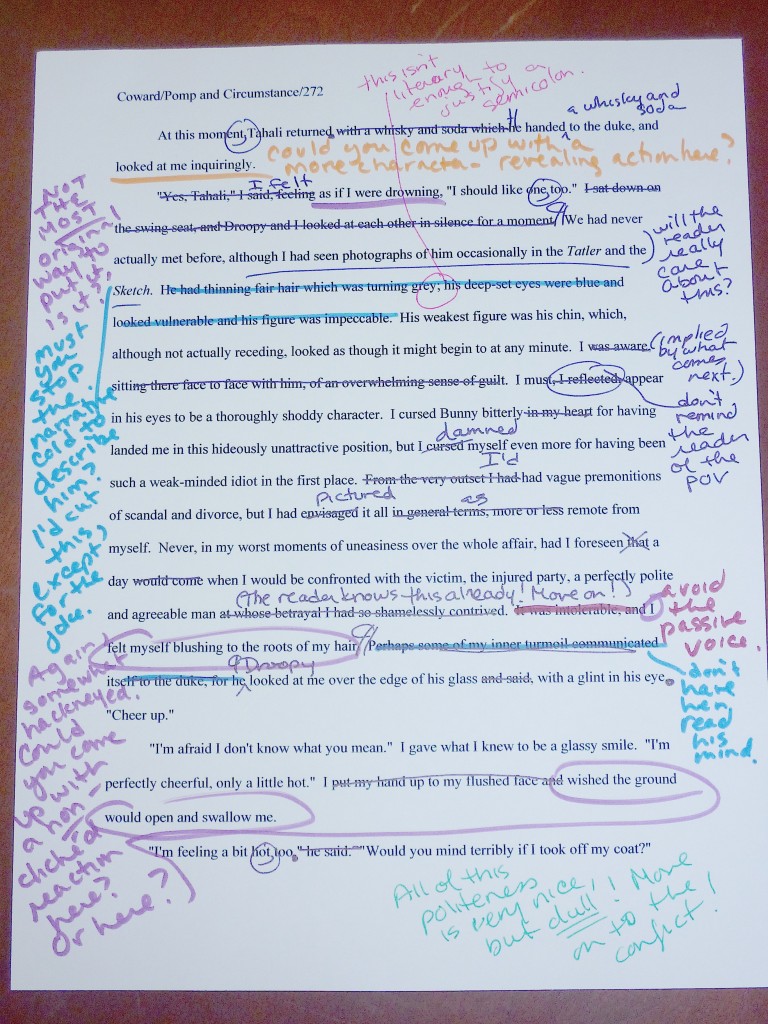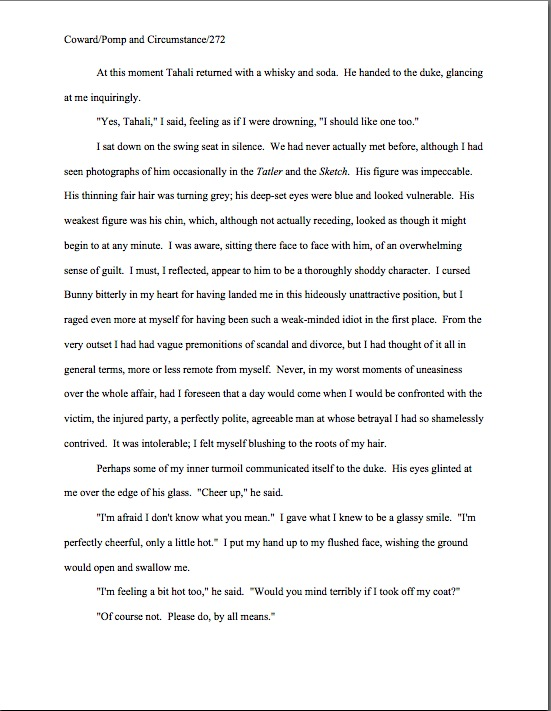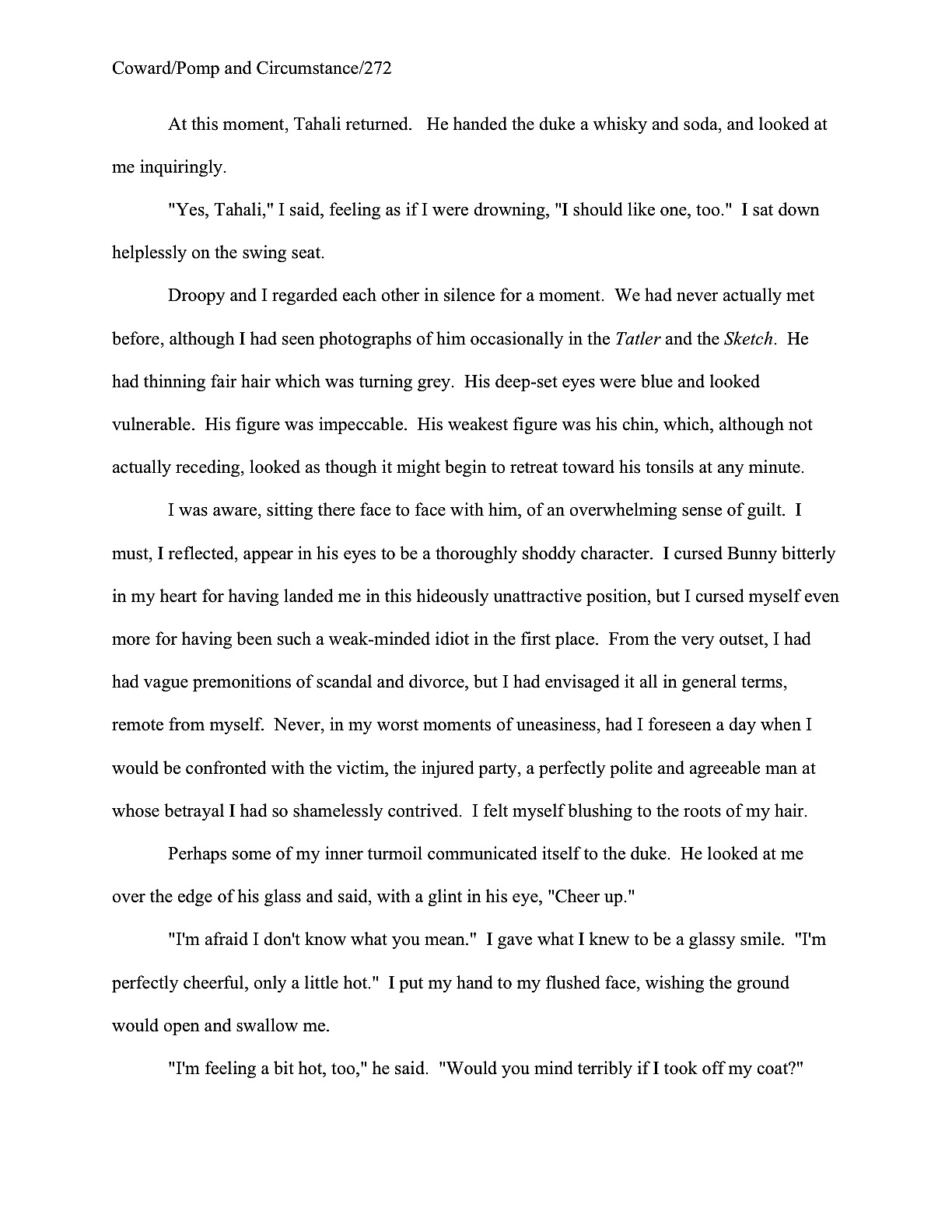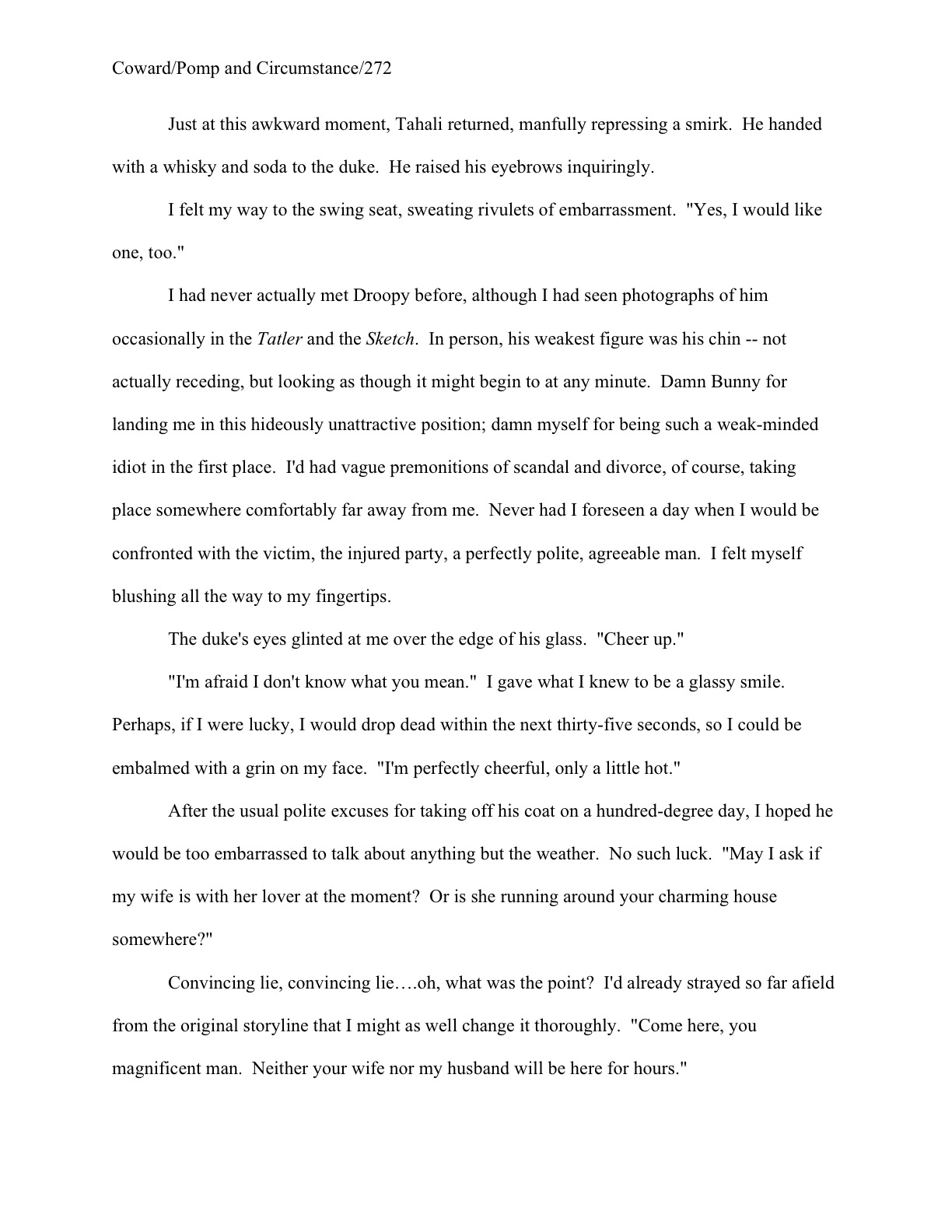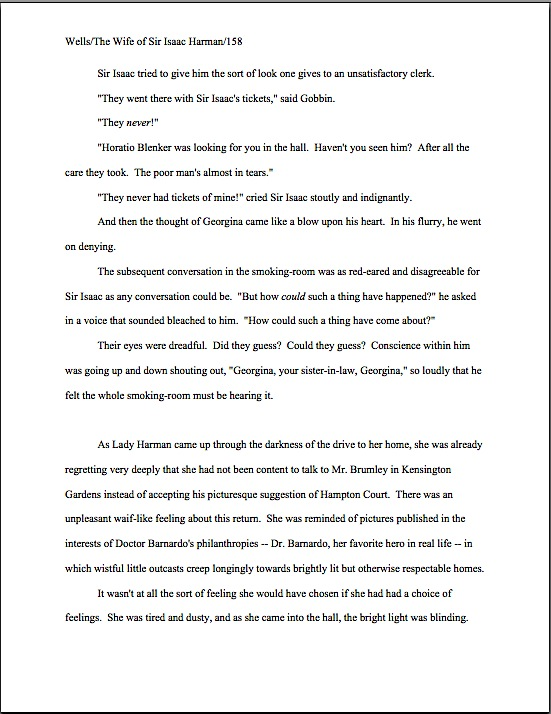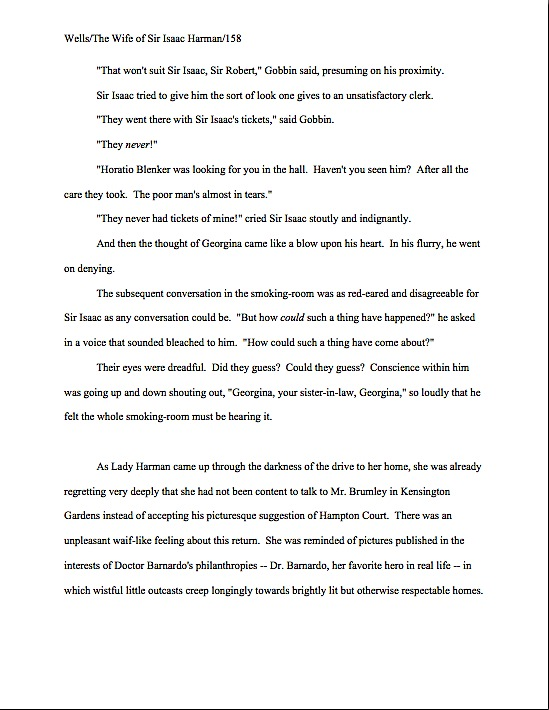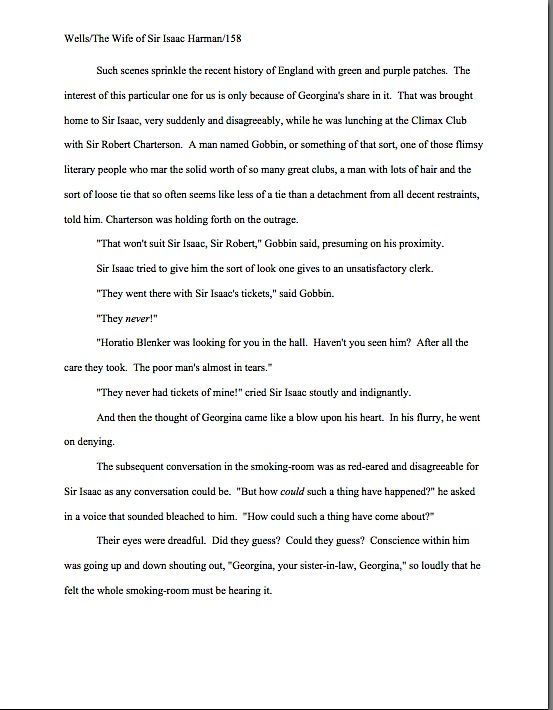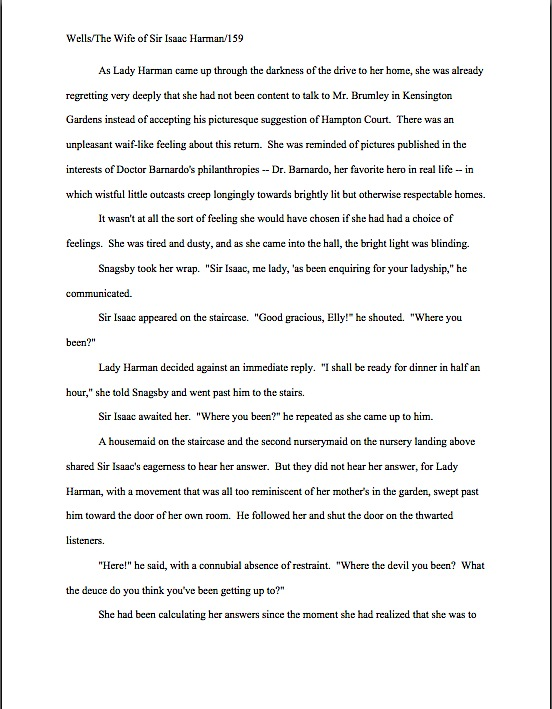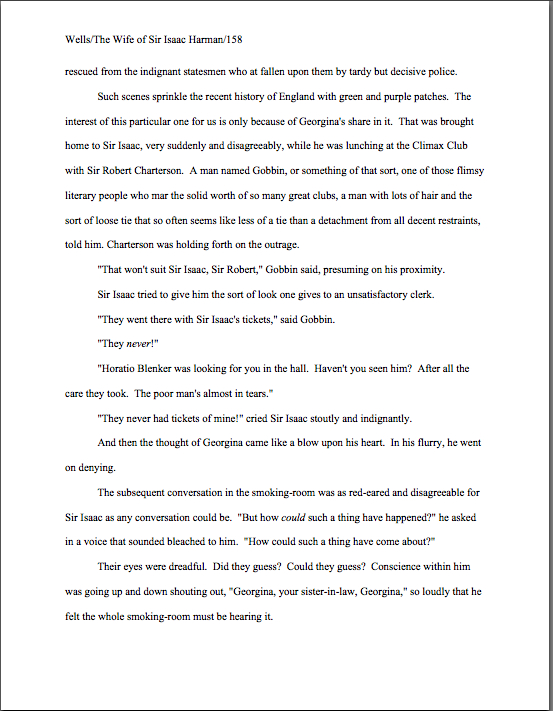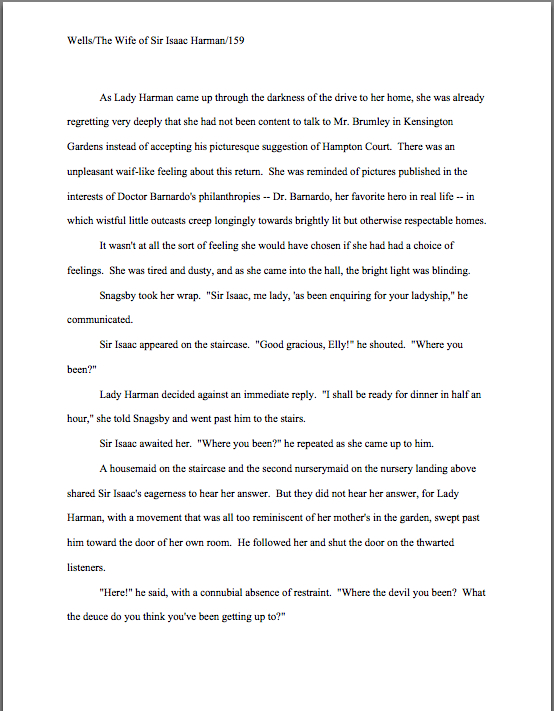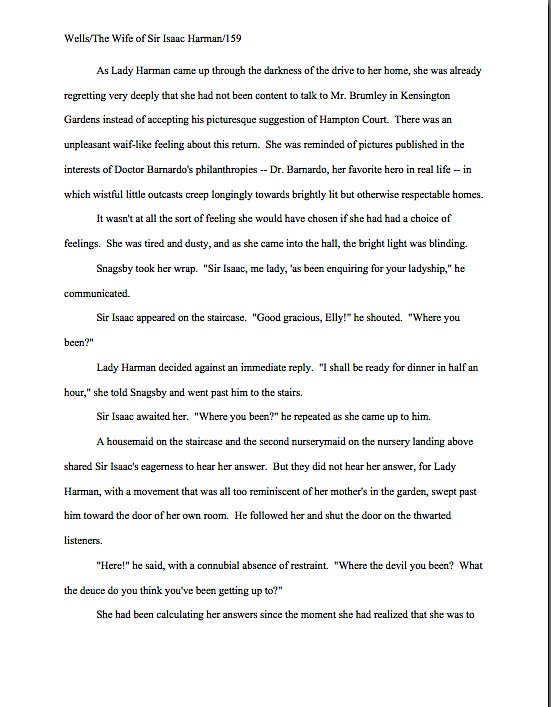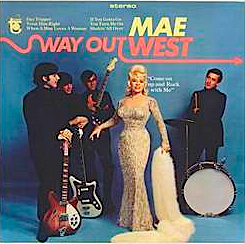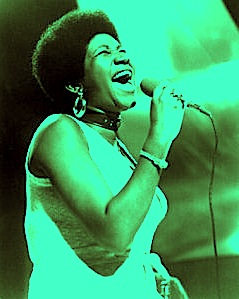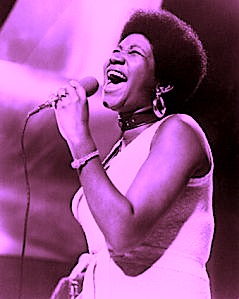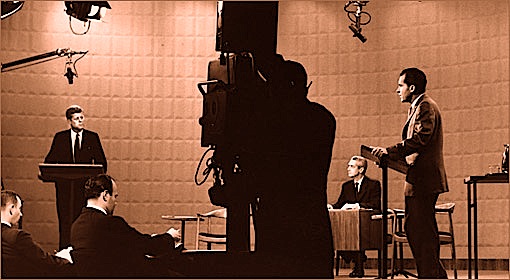
No, I didn’t pose that pigeon; she volunteered to be today’s illustration of a book happily inhabiting a niche market atop a well-constructed pitch. It would be a better visual metaphor if there weren’t also bricks above her, of course, but you focus on a medieval bridge, you take your chances, right?
Before I launch into today’s task in earnest, my mother has charged me to pass along an editorial admonition to you — and believe me, we do not take such decrees lightly chez Mini. Madame Mini senior desires me to inform all conscientious writers everywhere that she is darned tired of reading books and manuscripts that use each other and one another interchangeably.
That’s one of my pet peeves, too, doubtless due to my strenuously literary upbringing: each other refers to interactions between two characters, entities, or objects; one another is activity amongst 3 or more. My parents used to correct this one in conversation, as well as on the page.
And yes, that practice did rather startle anecdote-spouting dinner guests, now that you mention it. One’s standards do not evaporate just because one happens to be serving a soufflé, however.
So abandon hope, all ye who were hoping to get a sentence like Marni, Monique, and Murgatroyd looked at each other past a good, old-fashioned editor. While you’re at it, Madame Mini would also like you to start making a distinction between farther (refers to physical distance) and further (conceptual distance). There’s a pretty good reason that one doesn’t hear farthermore in casual conversation, after all.
In answer to those of you busily engaged in picking your jaws off the floor: yes, these are nit-picky distinctions, but little things like this drive classically-trained professional readers nuts. It’s inconceivable to an editor of my mother’s experience that anyone would not have learned these precepts, if not actually at their parents’ knees, then at least by the end of the fourth grade. She flatly refuses to believe that I constantly meet talented writers who — sacre bleu! — claim that they were never taught the rules governing when to use to, two, and too or there, their, and they’re.
“What do these writers do, then?” Madame Mini scoffs. “Guess?”
Judging by the average manuscript submission, I would have to say that is precisely what a lot of aspiring writers do. That, and rely too heavily upon their word processing programs’ spell- and grammar-checkers. I have yet to break it to my mother that my version of Microsoft Word not only doesn’t make the necessary each other/one another or farther/further distinctions; it frequently suggests that I should use the incorrect form of there, their, and they’re.
My neighbors who work at the Lazy M Ranch profess to have no idea why this might be the case. “Poor elementary school education?” one of them suggested. “I wasn’t sure about that rule until I was in college.”
Please don’t tell my mother. She might faint from the shock.
Actually, while we’re on the subject of looking, would you mind if I ask you to avoid a pet peeve of my own? Novelists, would you at least consider giving the phrases they looked at each other and she gave him a look a rest, please? Millicent the agency screener scarcely sees a manuscript these days that does not include one or the other within the first chapter, and often both.
It’s not merely the percussive effect of seeing the same sentences so often across so many manuscripts in any given reading day that gets her proverbial goat, you know; it’s the fact that the overwhelming majority of aspiring writers seem to believe that eye movement is an inherently interesting enough activity to deserve page space in an otherwise tightly-written narrative. From a professional reader’s perspective, it seldom is.
Remember, from a professional reader’s point of view, the bare fact that a character might have done something isn’t necessarily reason enough to for a narrative to mention it; especially in fiction and memoir, we tend to go for the character-revealing stuff. Unless the reader is shown the emotional intensity of a look, or what thoughts the author believes are being conveyed telepathically when two characters look at each other (or seventeen look at one another; it helps to see the rules in practice), all of that looking can come across as simply a substitute for more character- or situation-illuminating reactions.
Oh, it feels good to have gotten that one off my chest. Let’s get to work.
Last time, perhaps unwisely, I introduced those of you brand-new to verbal book pitching to the unique joys and stresses of a garden-variety conference pitching room. Why on earth would I scare you like that, you ask? Well, I think it’s important that first-time pitchers are aware what the environment into which they will be stepping is like.
Why, you ask again? Because we writers — c’mon, admit it — have an unparalleled gift for freaking ourselves out by imagining all kinds of strange things that might be waiting for us on the other side of the pitching table. Like, for instance, an agent who cuts a writer off three sentences into a pitch given within the context of a formal meeting: “Oh, that’s the third period, I’m afraid, and you had not even gotten halfway through establishing your premise. I’m sorry; industry standards prevent me from listening to even one more word from you.”
Or an agent who shouts, “I hate your plot, your hairdo, and your tie! Begone, and never cause me to choke on my latte again.”
Or a writer’s rocketing to instant fame, fortune, and publication as a result of a particularly well-given pitch. “Oh, I don’t need to read the manuscript,” the agent in this fantasy says, clapping the lucky pitcher on the back. “Someone who can talk about a book as well as you can is obviously a talented writer. Let me introduce you to that editor standing over there at the bar that’s never more than a hundred yards from any writers’ conference in North America, so we may sign a contract immediately. Would you be available to go on Oprah next week?”
Please believe me when I say that in years and years and years of attending conferences as both would-be pitcher and presenter, I have not even heard of any of these extremes actually occurring in real life. Honest. And Oprah’s off the air, at least on network television.
As I may have hinted a few times over the last couple of weeks, adhering to the common fantasies about what can happen in a pitch meetings both raise expectations to unreasonable levels and increase anticipatory fright to the point of being crushing. Knowledge really is power, at least in this respect.
No, really. By learning what to expect, you can prepare more effectively for your appointment with an agent or editor — and psych yourself out much less in the process.
Feeling a little better about the prospect of pitch preparation? No? Okay, here’s a bit more good news to gladden your heart: if you have been following this series step by step and doing your homework, you already have almost all of the constituent parts of a persuasive formal pitch constructed.
How is that possible, you cry? Well, for starters, you’ve already wrestled some of the most basic fears most writers harbor about pitching until they lay panting, gone over how to narrow down your book’s category, figured out who your target market is, brainstormed selling points for your book), as well as a platform for those of you who write nonfiction, and constructed a snappy keynote statement. We’ve seen how to introduce ourselves and our work with the magic first 100 words, to keep it pithy with the elevator speech, and to take advantage of the happy accidents chance may provide with a well-conceived hallway pitch.
Today, with all that under your proverbial belt, we’re going to begin to pull it all together into a two-pronged strategy for a stellar formal pitch: first, you’re going to impress ‘em by your professionalism, then you’re gonna wow ‘em with your storytelling ability.
Piece o’ cake, right?
Actually, it’s a heck of a lot easier than it sounds, once you understand what a formal pitch is and what you’re trying to achieve with it. To that end, I’m going to let you in on a little trade secret that almost always seems to get lost in discussions of how to pitch: contrary to popular opinion, a formal pitch is not just a few sentences about the premise of a book, nor is it a summary of the plot, or even a statement of the platform for a nonfiction book.
A formal book pitch is A MARKETING SPEECH, designed not only to show what your book is about, but also precisely how and why it is MARKETABLE.
Once you understand this — and once you accept that, within a publishing context, your book is not merely your baby or a work of art, but a PRODUCT that you are asking people who SELL THINGS FOR A LIVING to MARKET FOR YOU — an agent or editor’s response to your pitch is a much, much less frightening moment to contemplate. It’s not an all-or-nothing referendum on your worth as a writer or as a human being, but a PROFESSIONAL SELLER OF WRITING’s response to a proposed BOOK CONCEPT.
Regardless of whether the agent liked your tie or not. And your hair is fine, I tell you. If only you would stop thinking in all of those capital letters.
What a formal pitch meeting can and should be is the extraordinary opportunity of having an agent or editor’s undivided attention for ten minutes in order to discuss how best to market your work. For this discussion to be fruitful, it is very helpful if you can describe your work in the same terms the industry would.
Why, what a coincidence: if you will be so kind as to cast your eye back over my breakdown of Pitchingpalooza above, you will see that you have already defined your work in those terms. Aren’t you clever, to be so well prepared?
Really, you’re almost there. If it came right down to it, you could construct a quite professional short pitch from these elements alone.
Oh, wait, here is another remarkable coincidence: you already have. It’s called your hallway pitch, and I sincerely hope that those of you who are imminently conference-bound have already begun trying it out on everyone you meet. It’s a serious mistake not to speak it out loud prior to your scheduled pitch meeting, or even to the conference.
Why? Out comes the broken record again:
 It takes lots of repetition to get used to hearing yourself talking about your work like a pro, rather than like a serious writer talking to other serious writers. Or a hobbyist writer talking to someone at a party kind enough to say, “Oh, you write? What kind of books?”
It takes lots of repetition to get used to hearing yourself talking about your work like a pro, rather than like a serious writer talking to other serious writers. Or a hobbyist writer talking to someone at a party kind enough to say, “Oh, you write? What kind of books?”
Why shouldn’t you talk about your work to the pros the way we talk about amongst ourselves or at a non-literary cocktail party? Well, when we’re in creative mode, we tend to speak with other writers about our hopes, fears, and difficulties — entirely appropriate, because who else is going to understand your travails better than another writer? But in a formal pitch meeting, it’s time to put aside those complicated and fascinating aspects of the creative process, and talk about the book in terms the non-creative business side of the industry can understand.
It’s time, to put it bluntly, to speak of your book as a commodity that you might conceivably want someone to buy, not as a reason to like or respect you as a creative human being. (Hey, I warned you it was going to be blunt.)
Recognizing that is not the first sign of selling out, as so many aspiring writers seem to believe: it’s an absolutely necessary step along the undiscovered (and unpaid) artist’s road to fame, fortune, and large readerships. Or even small ones.
Besides, walking into a conference believing that agencies and publishing houses are primarily non-profit institutions devoted to the charitable promotion of good art tends to lead to poor pitching. A savvy pitcher understands that good marketing and good art can are not natural enemies.
It’s imperative that your formal pitch reflect that understanding. Think about it: reputable agents and editors make their livings by selling books, after all; they are unlikely to the point of hilarity to be even remotely sympathetic to an aspiring writer who feels that his book will seem less artistically worthwhile if he knows anything about how — or even to whom — it might be sold.
That can work to your advantage: because art vs. commerce is such a common attitude, even amongst writers who have plopped down a considerable amount of money to pitch at a conference, presenting yourself as one of the few who has taken the time to learn how publishing actually works and how your book might fit into the current market will at least enjoy the benefit of novelty.
And a thousand hands just shot into the air. “I want to be the exception, Anne,” eager pitchers everywhere cry, “but I’m not sure how to force my book’s premise into a form that makes sense from a marketing perspective. How might one go about satisfying the demands of both art and commerce in a formal pitch meeting?”
I’m so glad you asked. I feel a theoretical structure about to emerge.
Step I: First, begin with your magic first hundred words:
”Hi, I’m (YOUR NAME), and I write (BOOK CATEGORY). My latest project, (TITLE), is geared toward (TARGET MARKET). See how it grabs you: (KEYNOTE).”
As in a query letter, if you can work in a flattering reference to a specific past project upon which the agent or editor has labored, even if it’s not in your genre, just after your name is a great place to do it. As in,
“Hi, my name is J.K. Rowling, and I got so excited when you said on the agents’ panel earlier that you are looking for YA books where children solve their problems without adult guidance! That sounds like a back jacket blurb for my novel. My latest project, HARRY POTTER AND THE SORCERER’S STONE is middle-grade fiction aimed at kids who feel like outsiders. See how it grabs you…”
If you are pitching nonfiction, this is the step where you will want to mention your platform. For example,
“Hi, my name is Bill Clinton, and I used to be President of the United States. I write political books, building upon that expertise. My latest project…”
Everyone on board with that? Good. Let’s press on.
Step II: After you finish Step I, with nary a pause for breath, launch into an extended version of your elevator speech, one that introduces the protagonist, shows the essential conflict, and gives a sense of the dramatic arc or argument of the book. The resulting equation would look like this:
“(Protagonist) is in (interesting situation).” + about a 1-minute overview of the book’s primary conflicts or focus, using vivid and memorable imagery.
Again, do not even attempt to tell the entire plot. Your goal here is to get your hearer to ask to read the book you’re pitching, not to convey the plot in such detail that your hearer feels she has already read it.
This structure will work equally well for a memoir, of course. The trick is to present oneself as the protagonist — and to do that, you’re going to have to think of yourself as a character in your book, as well as its writer.
“I was in (interesting situation).” + about a 1-minute overview of the book’s primary conflicts, using vivid and memorable imagery.
For a nonfiction book that isn’t a memoir, present the central question your book will address, along with why a reader would care about it. In considering that last part, remember, you can’t safely assume that the agent or editor to whom you will be pitching will be forearmed with any prior knowledge of your subject matter. This structure tends to work:
“The world is facing (interesting situation); if it is not resolved, (insert dire consequence here).” + about a 1-minute overview of the book’s primary focus, using vivid and memorable imagery.
For fiction or memoir, make sure to identify your protagonist in the first line of your pitch– by name, never as “my protagonist,” or you will sound like you are giving a book report. Yes, yes, I know that you learned in English class that it’s spiffy to speak in terms of protagonists and antagonists, as well as to say things like, “At the climax of the book…”, but a verbal pitch is the wrong context to talk about a book as if you were writing an essay about it. It’s distancing, and many pros find it more than a bit pretentious. (True in query letters as well, by the way.)
Here’s an even better reason to identify your protagonist by name: it’s substantially easier for a hearer to identify with a named character than an amorphous one. Even better, introduce her as an active struggler in the conflict, rather than a passive victim of it. (And if you don’t know why a story about a passive protagonist is usually harder to sell than one about her more active cousin, please see the PURGING PROTAGONIST PASSIVITY category at right before your next pitch appointment.)
Step III: Then, to tie it all together, you would give the agent or editor a brief explanation of why this book will sell to your intended readership. Not a boast, mind you: analysis that demonstrates the extent of your market research.
If you have demographic information about that target market, or a comparison to a similar book released within the last five years that has sold very well, this is the time to mention it:
“I’m excited about this project, because of its (SELLING POINTS). Currently, there are (# of TARGET MARKET members) in the United States, and this book will appeal to them because (more SELLING POINTS).”
Add a little charm and stir, and voilà: the two-minute pitch. Admittedly, my method is a trifle unusual, a little offbeat structurally, but in my experience, it works. It sounds professional, while at the same time conveying both your enthusiasm for the project and a sense of how precisely the worldview of your book is unique.
Not to mention quite doable. You could manage all three of those steps in two minutes, right?
Of course you could: with aplomb, with dignity. Because, really, all you are doing here is talking about the work you love, telling your favorite story, in the language that agents and editors speak.
Once again, a forest of hands arises before my eyes. “But Anne,” some confused souls point out, “didn’t you say that most scheduled pitch meetings are around 10 minutes long? If that’s the case, why do I have to limit myself to a 2-minute pitch? Couldn’t it be, you know, 3? Or 8?”
Good question, confused ones, and here’s the answer: no, because if you went much over 2, there would not be time for subsequent conversation. Or for the agent of your dreams to interrupt you in the course of your speech in order to ask trenchant and enlightening questions.
Or to allow for time for a panicking pitcher to take a moment to compose herself, if necessary and appropriate. Aspiring writers aren’t tape recorders, you know, and most agents and editors honestly do want to give ‘em a chance to give their pitches.
The 2-minute pitch usually takes place at the very beginning of a pitch meeting; thus the imperative to introduce oneself. (You wouldn’t believe how many pitchers get so excited that they omit this essential information. Or the title of the book.) See why it’s so important to make your pitch a good yarn?
No? Was there so much going on in these last two posts that you forgot to look for a moral hidden in the midst of it all?
Excellent, if so — because that IS the moral: there’s going to be so much going on during your pitch appointment that it’s prudent to assume that it will be darned difficult to make even the most elegant story sound fresh and pithy.
Especially if you find yourself, as so many pitchers do, having a meeting under ear-splitting conditions. Remember, a high probability that you — and the agent sitting across the table from you — will be able to hear the other pitches and conversations going on around you. It’s easy for a hearer to get distracted, especially after pitch fatigue — the inevitable numbing effect on the mind of hearing many pitches over a short period of time — has started to set in.
Heck, you may find it hard to concentrate on your storyline — and you won’t even be the one who has already heard fifty pitches that day. Counterintuitive as it may seem, buttonholing an agent at a crowded luncheon or after a well-attended seminar for a hallway pitch is often a significantly quieter option than giving a 2-minute pitch during a scheduled appointment.
And yes, if I ruled the universe, this would not be the case, but apparently, conference centers fall outside the range of my scepter. Yet conference organizers are not actively trying to weed out the shy, the agoraphobic, and the noise-sensitive — although that is often the effect of a well-stocked pitching room. It’s just that space is often at a premium at a literary conference, and many conference centers have really lousy acoustics.
Or really good acoustics, depending upon how badly you want to hear the pitcher 20 feet away from you describe the gory mass murder at the center of his thriller.
Thus your goal is not merely to make the case that your book is a good one — it is to tell a story so original, in such interesting language, and with such great imagery that it will seem fresh in a pitching environment. That’s equally true for fiction and nonfiction, by the way, and even more so for memoir.
How might one go about that? In a frequently chaotic-feeling pitching situation, including vivid, surprising details is the best way I know for a good storyteller to make an exhausted agent sit up and say, “Wait a minute — I’ve never heard a tale like THAT before!”
Does this advice seem just a touch familiar? It should — it’s that old saw show, don’t tell, transplanted from the page to the pitching environment. The essence of good storytelling, after all, lies in evocative specifics, not one-size-fits-all generalities. The higher the ratio of one-of-a-kind details to summary in your pitch, the greater the probability of its being memorable.
And terrific.
Oh, there are all of those raised hands again. “But Anne,” some of these wavers protest, “I’m likely to be too nervous to remember the name of my book during my pitch meeting, much less any brilliantly vivid and pithy details I might have thought up in the solitude of my quiet room. Isn’t it just a touch unreasonable to expect me to be able to blurt ‘em out on command?”
Not really — as long as you don’t rely solely on your memory to help you through. There’s no earthly reason not to write out your 2-minute pitch on an index card or piece of paper and have it in front of you throughout the meeting.
Honest, it won’t render your pitch less impressive. As I mentioned last time, reading a formal pitch is completely acceptable; if you remember to look up occasionally, no one will fault you for reading your pitch, rather than blurting it out from memory. That way, you will be sure to hit all of those important points, as well as to include each and every memorable detail.
And no, you will not get Brownie points for reciting it from memory. This isn’t your 5th grade class’ Americana pageant, and this isn’t the Gettysburg Address — which, incidentally, Abraham Lincoln was too experienced a public speaker to attempt to give from memory.
Actually, at 267 words, the Gettysburg Address is a pretty good length guideline for a formal pitch. It’s also proof positive that it is indeed possible to work expressive language and strong imagery into a 2-minute speech. Take a gander:
Four score and seven years ago, our fathers brought forth on this continent a new nation, conceived in liberty, and dedicated to the proposition that all men are created equal. Now we are engaged in a great civil war, testing whether that nation, or any nation so conceived and so dedicated, can long endure. We are met on a great battlefield of that war. We have come to dedicate a portion of that field, as a final resting place for those who here gave their lives that that nation might live. It is altogether fitting and proper that we should do this.
But, in a larger sense, we cannot dedicate…we cannot consecrate…we cannot hallow this ground. The brave men, living and dead, who struggled here have consecrated it, far above our poor power to add or detract. The world will little note, nor long remember what we say here, but it can never forget what they did here.
It is for us, the living, rather, to be dedicated here to the unfinished work which they who fought here have thus far so nobly advanced. It is rather for us to be here dedicated to the great task remaining before us — that from these honored dead we take increased devotion to that cause for which they gave the last full measure of devotion –that we here highly resolve that these dead shall not have died in vain — that this nation, under God, shall have a new birth of freedom — and that government of the people, by the people, for the people, shall not perish from the earth.
Great speech, eh? Admittedly, my editorial hand itches to excise some of the structural redundancy, as well as some of those extraneous heres, and smooth out some of those slightly awkward subordinate clauses. (Had I mentioned that editors tend to be nit-picky?) There’s no denying, though, that this is a magnificently constructed argument.
Ever heard the story about why it’s so short? It wasn’t that Lincoln didn’t have a lot to say — he was scheduled to speak immediately after one of the greatest of living orators, Edward Everett. The opening act’s light-hearted little lecture lasted for two solid hours.
Who could compete? Lincoln knew better. Rather than fight fire with fire, he did one of the smartest things someone making a speech can do if he wants to be remembered fondly by his hearers: he made his point, and then he stopped talking.
In memory of that excellent strategic choice, let’s add another step to our formula for a formal pitch:
Step IV: once you have gone through all of the steps above, shut up and let your hearer get a word in edgewise.
Most pitchers forget this important rule, rambling on and on, even after they have reached the end of their prepared material. Or even after the agent or editor has said, “Great; send me the first chapter.”
Don’t keep trying to sell your book; it won’t help your case. It’s only polite to allow the agent to respond, to be enthusiastic.
Besides, it’s better storytelling. If even you’re going to hand your listener a cliffhanger worthy of the old Flash Gordon radio serials, it is likely to fall flat if you don’t leave time for your listener to cry, “But what happened NEXT?”
A good storyteller always leaves her audience wanting more — and a good salesperson knows when to take yes for an answer.
Most of us have been turned off by a too-hard sell in other contexts, right? If your primary concern in choosing a vehicle is the gas mileage, you’re going to start to feel impatient if the car dealer keeps rattling off details about how many bags of groceries you could fit in the trunk.
By rambling, you’ll be missing out on a golden opportunity to demonstrate what a good listener you are. Remember, you’re not only trying to convince the agent or editor that your book is well-written and interesting — you’re also, if you’re smart (and I know you are), attempting to convey that you’d be an absolute dream to work with if they signed you.
I don’t know why this point so seldom comes up in pitching classes or in agent and editor Q&As at conferences, but being a considerate, careful listener is a definite selling point for a writer. So is the ability to ask thoughtful questions and an understanding that agents and editors in fact have jobs that are extraordinarily difficult to do well.
Treating them with respect during your pitch session will go a long way toward demonstrating that you have been working those delightful skills. These are interesting human beings, after all, not publication-granting machines.
Why, there’s yet another coincidence: if you’ve been following this series from the very beginning, you have been building the knowledge base to handle your pitch encounters as professional meetings, not as Hail Mary shots at a target nearly impossible to hit. You’ve done your homework about the people to whom you are intending to pitch (or query), so you may speak to them intelligently about their work; you have performed a little market research, so you may discuss your target market and sales trends for your type of book; you have figured out why people out there will want to buy your book as opposed to any other.
Okay, you’ve caught me: I’ve been pursuing a dual agenda here. I’ve not only been helping you prepare to pitch, but I’ve been pushing you to develop the skills that will make you a great client for an agency and a wonderful writer for a publishing house. Call me zany, but I like win-win outcomes.
Next time, I shall tackle how to track down those vivid little details that will make your pitch spring to life. In the meantime, keep up the good work!

 (1) As with the keynote and the elevator speech, most pitchers make the mistake of trying to turn the pitch proper into a summary of the book’s plot, rather than a teaser for its premise.
(1) As with the keynote and the elevator speech, most pitchers make the mistake of trying to turn the pitch proper into a summary of the book’s plot, rather than a teaser for its premise. (2) Most pitchers don’t stop talking when their pitches are done.
(2) Most pitchers don’t stop talking when their pitches are done. (3) The vast majority of conference pitchers neither prepare adequately nor practice enough.
(3) The vast majority of conference pitchers neither prepare adequately nor practice enough. (4) Most pitchers harbor an absurd prejudice in favor of memorizing their pitches, and thus do not bring a written copy with them into the pitch meeting.
(4) Most pitchers harbor an absurd prejudice in favor of memorizing their pitches, and thus do not bring a written copy with them into the pitch meeting. (5) Most pitchers don’t realize until they are actually in the meeting that part of what they are demonstrating in the 2-minute pitch is their acumen as storytellers. If, indeed, they realize it at all.
(5) Most pitchers don’t realize until they are actually in the meeting that part of what they are demonstrating in the 2-minute pitch is their acumen as storytellers. If, indeed, they realize it at all. (6) Few pitches capture the voice of the manuscript they ostensibly represent. Instead, they tend to sound generic or vague.
(6) Few pitches capture the voice of the manuscript they ostensibly represent. Instead, they tend to sound generic or vague.
 (8) Very few pitches include intriguing, one-of-a-kind details that set the book being pitched apart from all others.
(8) Very few pitches include intriguing, one-of-a-kind details that set the book being pitched apart from all others. (9) Most pitchers assume that a pitch-hearer will hear — and digest — every word they say, yet the combination of pitch fatigue and hectic pitch environments virtually guarantee that will not be the case.
(9) Most pitchers assume that a pitch-hearer will hear — and digest — every word they say, yet the combination of pitch fatigue and hectic pitch environments virtually guarantee that will not be the case. (10) Few pitchers are comfortable enough with their pitches not feel thrown off course by follow-up questions.
(10) Few pitchers are comfortable enough with their pitches not feel thrown off course by follow-up questions. (11) Far too many pitchers labor under the false impression that if an agent or editor likes a pitch, s/he will snap up the book on the spot. In reality, the agent or editor is going to want to read the manuscript first.
(11) Far too many pitchers labor under the false impression that if an agent or editor likes a pitch, s/he will snap up the book on the spot. In reality, the agent or editor is going to want to read the manuscript first. If the agent is interested by your pitch, she will hand you her business card and ask you to send some portion of the manuscript — usually, the first chapter, the first 50 pages, or for nonfiction, the book proposal. If she’s very, very enthused, she may ask you to mail the whole thing.
If the agent is interested by your pitch, she will hand you her business card and ask you to send some portion of the manuscript — usually, the first chapter, the first 50 pages, or for nonfiction, the book proposal. If she’s very, very enthused, she may ask you to mail the whole thing.


 As of this moment, you have my permission to get into an elevator with an agent or editor without pitching, if you so desire. Live long and prosper.
As of this moment, you have my permission to get into an elevator with an agent or editor without pitching, if you so desire. Live long and prosper. I hereby solemnly swear that I shall not have learned the magic first hundred words and elevator speech in vain. The next time I attend a writers’ conference, I will pitch to at least three agents or editors with whom I do not have a previously-scheduled appointment.
I hereby solemnly swear that I shall not have learned the magic first hundred words and elevator speech in vain. The next time I attend a writers’ conference, I will pitch to at least three agents or editors with whom I do not have a previously-scheduled appointment. MAGIC FIRST 100 WORDS + ELEVATOR SPEECH = HALLWAY PITCH.
MAGIC FIRST 100 WORDS + ELEVATOR SPEECH = HALLWAY PITCH.
